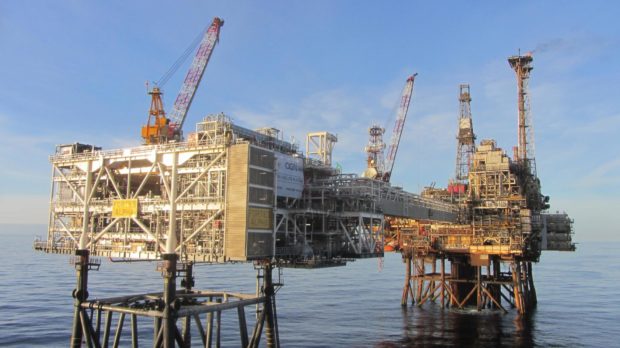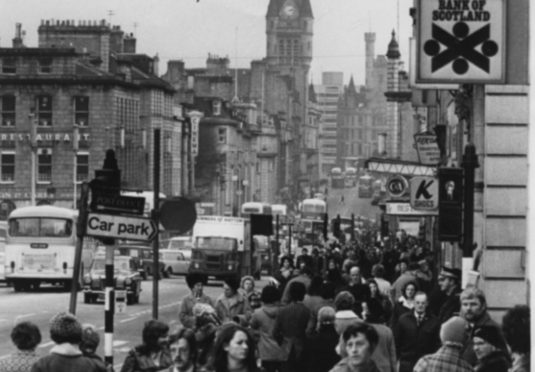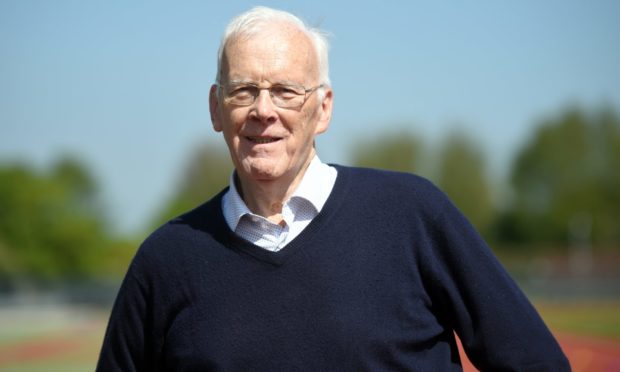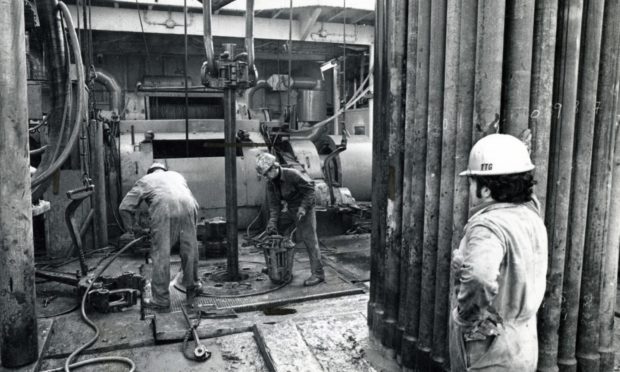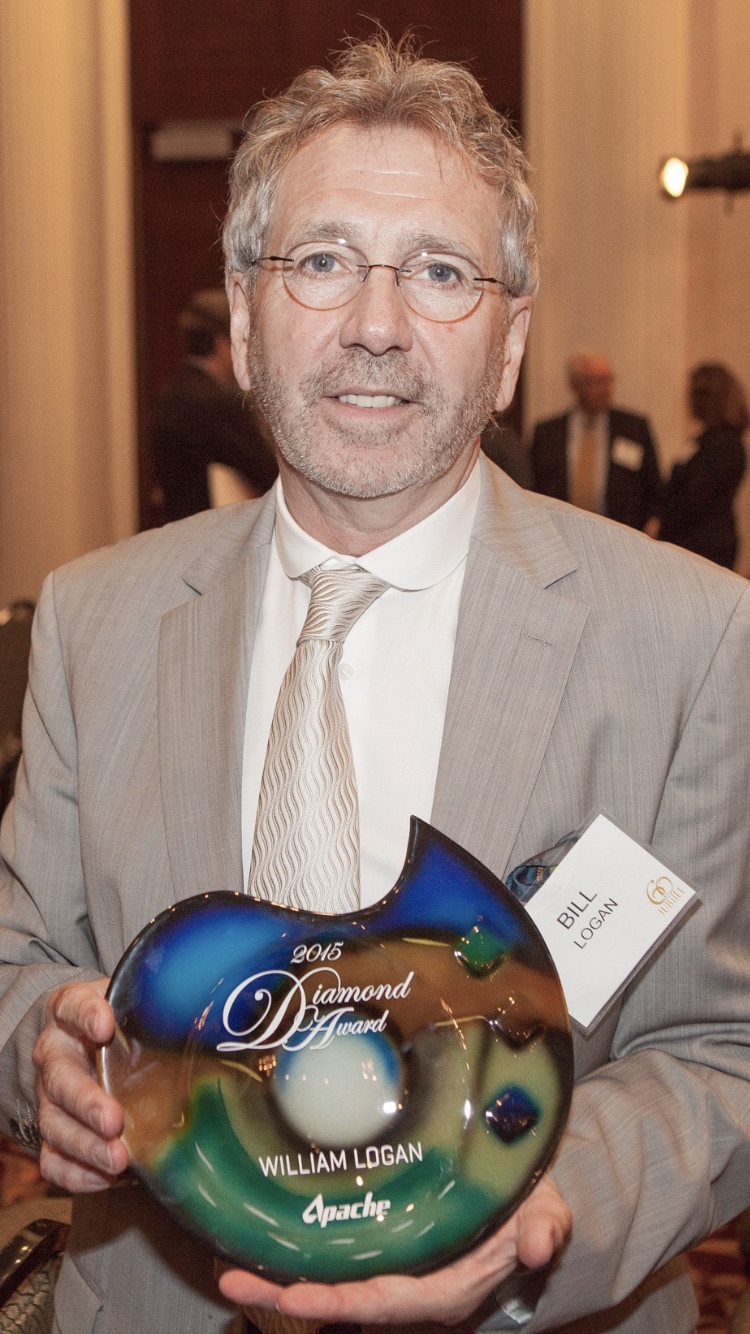BP’s decision to sell the “jewel in its crown” in 2003 to a US firm with no track record in the UK North Sea was greeted with a mixture of shock and suspicion, based partly on fears of job losses.
But the transfer gave the Forties field a new lease of life and turned out to be “exactly what the North Sea region required”, oil veterans have said.
On hearing the news, Bill Logan, a retired, former Forties offshore installation manager, spoke of a “fear of the unknown”.
Mr Logan, who had worked on the field for BP since 1977, was concerned the Houston company’s management would be heavy handed and replace staff with ex-pats from the US.
But Apache quickly provided reassurances that all 230 staff on the five platforms and 35 onshore employees would be offered a job with the firm.
A couple of weeks on from the deal’s announcement, then-Energy Minister Brian Wilson said he was “extremely impressed” after meeting managers from the buyer.
He described the purchase as a “win-win” for the North Sea and the UK Government, which wanted to see assets placed in the right hands.
Mr Logan, who would spend the remaining 12 years of his career with Apache, and was known as “Mr Forties” to some colleagues, had spent many happy and productive years on Forties with BP.
He recalled his first “daunting” helicopter trip in 1977, during which some colleagues were smoking, while others kept their tightly eyes closed until the aircraft had landed.
The early years were hard-going as construction and drilling continued on all four platforms, which put accommodation at a premium.
Each cabin contained six beds and the light in the room was kept on 24 hours a day as crew came and went.
“You did not get much sleep during your two-week offshore work cycle,” he said.
Mr Logan also spoke of the “fantastic food” and the “comradeship” offshore, with everyone getting involved in after-shift activities like pool, darts and quizzes.
Visits by dignitaries, royal and celebrities, such as Princess Diana, Margaret Thatcher, Cilla Black and Bucks Fizz, were commonplace.
He also recalled one of the foreign laundry stewards remaining offshore for a full 12 months before being told he needed to go back onshore for a break.
Mr Logan said: “He was eventually forced to leave the platform and cried when he left.
“Rumours had it that he returned to his homeland a very wealthy gentleman.”
But by the time of the acquisition, BP had been “running down activities, reducing maintenance” and discussing probable decommissioning as early as 2016.
Mr Logan, who moved onshore after the deal went through, described the new owners were a “breath of fresh air” for the basin.
Apache didn’t waste much time before approving projects to extend the life of the field’s platforms and resume drilling operations, which BP had ceased years earlier.
Its management also personally challenged suppliers to drive down costs where possible.
Mr Logan admitted colleagues needed a couple of years to “come to terms” with the Apache way of working and with the US culture, which is more “aligned to a mission-command approach”.
The shift in culture paid dividends. Mr Logan, who was presented with the Apache CEO’s Diamond Award in 2015 for his contributions to the Forties field, added: “The Forties field once again became a jewel in the crown of North Sea oil and gas production.
“Efficiency was constantly being delivered at 90%-plus and projects were on time and within budget.”
Jim House was chosen to head up Apache’s UK North Sea operators in 2005 and spent nine years in the role.
He said BP deserved a lot of recognition for developing and expanding the field.
Mr House also acknowledged Apache had to prove to itself and others in industry that “not only could the company operate in the North Sea, but also that it could be one of the best”.
But Mr House, now chief executive at Neptune Energy, said Apache showed it was the “right answer” for Forties in 2003.
He recalled: “Forties was a company-maker for BP in the 1970s. If you look at what BP did to finance Forties, it’s an incredible story in itself.
“It left a large legacy and is an important chapter in UK history.”
Mr House believes BP sold the field at the right time to a company with the drive and capital structure to address issues and extend field life.
He said: “People talked about BP selling the family jewels, but by the time of the sale, Forties had been competing for capital with other developments for 10 years.
“Apache could make decisions quicker and had the technical ability to drive change.
“People recognised early on that production was going up and that the company was drilling wells from all four platforms.”
Mr House said Apache needed a good four years to “turn the corner” and get Forties operating as desired.
The company overhauled the platforms’ power generation and distribution systems and invested in the Forties Alpha satellite platform, built in Tyneside.
Uptime on the platforms was enhanced to in excess of 90% from 60%, meaning Forties was “leading the pack” in the North Sea, according to Mr House, who looks back on his time in Aberdeen with great fondness.
“When you’ve been in a place nine years you grow roots. I’ve got a lot of dear friends and colleagues and my kids spent eight or nine of their formative years there,” he said.
“When the company punched my ticket, they had to pull me out of Scotland kicking and screaming.”
